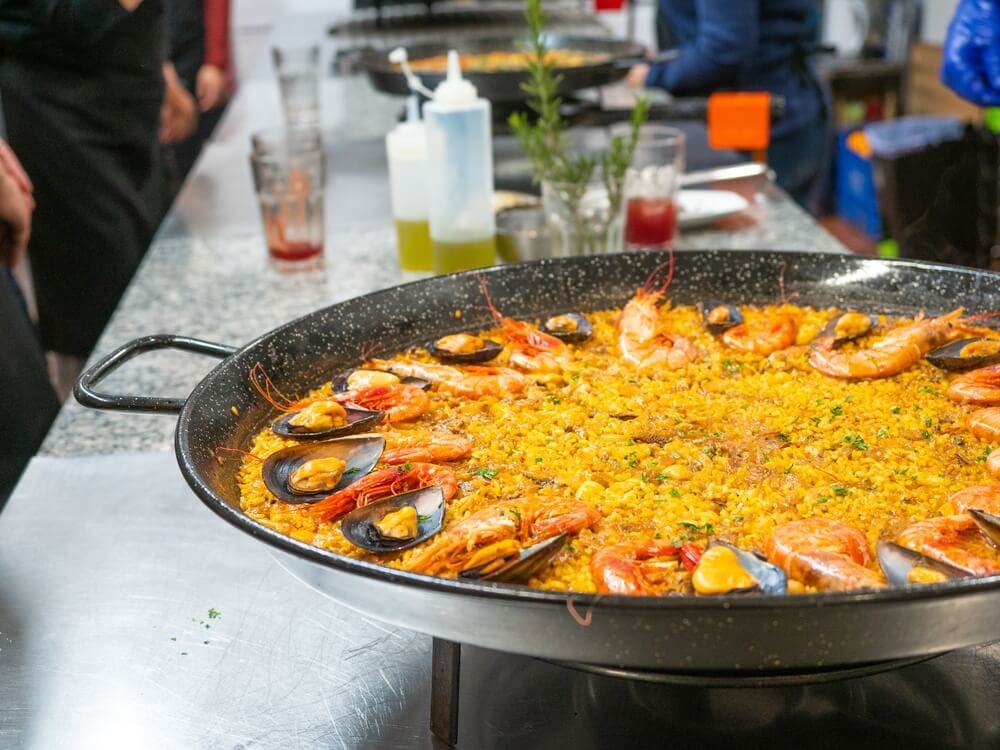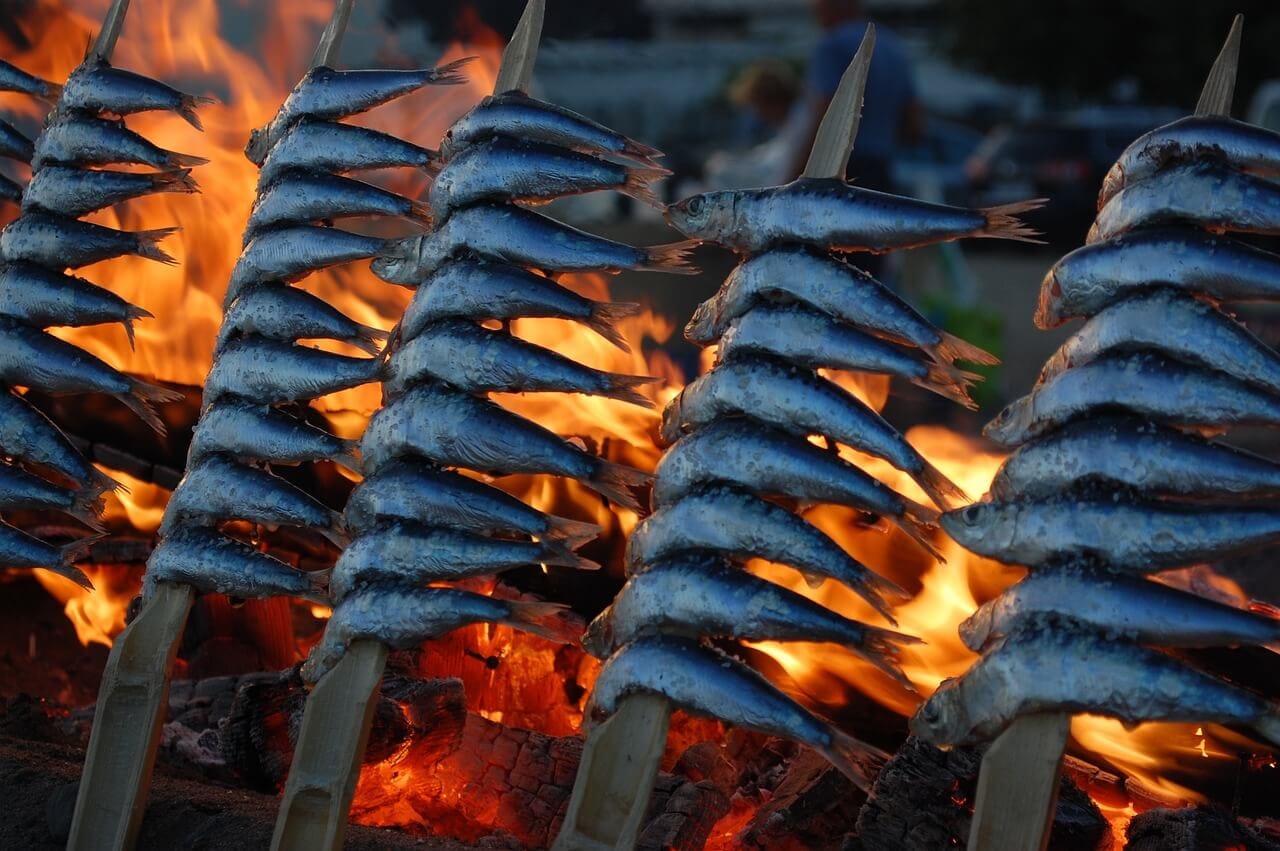
Discover the Seafood and Cuisines of Estepona
The Culinary Gems of Estepona
A Taste of Andalusia's Coastal Treasures
Estepona’s coastal location provides an abundance of fresh seafood, forming the backbone of its cuisine. The town’s bustling fish markets, such as the Lonja de Estepona, are a testament to the local fishing heritage. Here, you can find a variety of seafood that ends up in the kitchens of renowned restaurants and humble tapas bars alike.
Iconic Seafood Dishes in Estepona
When in Estepona, you must try some of the region’s iconic seafood dishes. Espetos de Sardinas, or skewered sardines, are a local favorite, traditionally cooked over an olive wood fire on the beach, which adds a unique flavor. Gambas al Pil-Pil, or prawns cooked in garlic, chili, and olive oil, offer a spicy kick that tantalizes the taste buds. Pulpo a la Gallega, Galician-style octopus, is another must-try, featuring tender octopus seasoned with paprika, olive oil, and sea salt
Seafood Varieties and Harvesting Methods
Abundant Seafood Varieties
Estepona’s waters are teeming with a diverse range of seafood. Common catches include sardines, anchovies, mackerel, bream, and shellfish like clams, mussels, and shrimp. The local cuisine reflects this diversity, with each seafood variety playing a starring role in various dishes.
Sustainability is at the heart of Estepona’s fishing industry. Local fishermen adhere to quotas and seasonal restrictions to ensure fish populations remain healthy. Additionally, techniques like marisqueo, sustainable shellfish harvesting, are employed to protect marine ecosystems. The farm-to-table or kilometro cero concept is also widely implemented, ensuring that seafood travels minimal distances from the sea to the plate, supporting both local restaurants and large supermarkets such as Carrefour.
Seasonal Seafood at its Prime
Understanding the seasonality of seafood enhances the dining experience. For example, sardines are at their best from June to September, while mussels peak from October to March. This seasonality ensures that seafood is enjoyed at its freshest and most flavorful.
Bluefin Tuna in Costa del Sol
Fishing along the coast of Andalusia is steeped in tradition. While the use of almadraba, an ancient fishing technique for catching bluefin tuna, does not occur directly in Estepona, it is practiced in nearby towns in neighboring Cadiz. Almadraba involves creating a labyrinth of nets that guide highly prized bluefin tuna into a central net. By employing this technique, only those tuna allowed by regulation are harvested, not impacting the remainder of the school. Despite being invented hundreds of years ago, almadraba is still practiced due to its efficiency and the aforementioned minimal environmental impact. The fresh catch from these towns often finds its way into Estepona’s best restaurants.
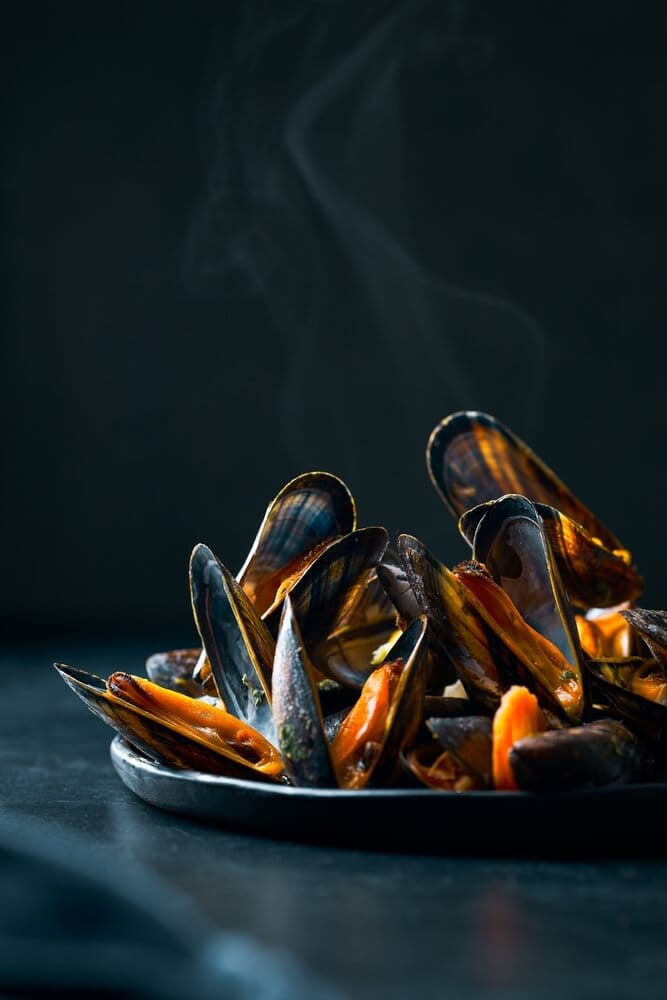
SIGN UP FOR OUR NEWSLETTER OR FOLLOW US ON SOCIAL MEDIA
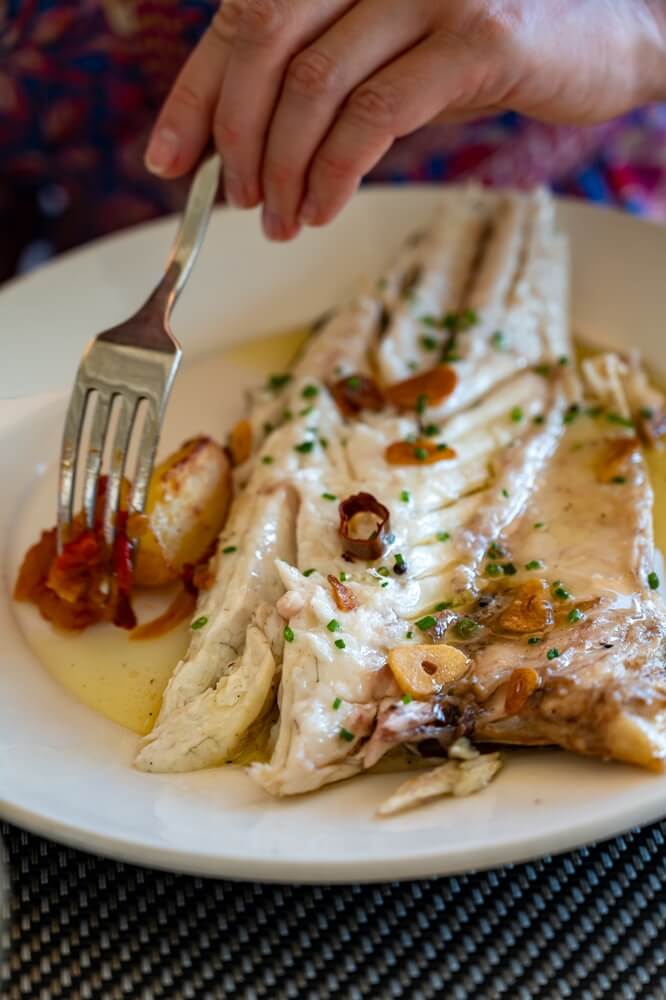
Estepona's Culinary Scene
Estepona's Best Seafood Restaurants
The culinary scene in this warm Andalucían town is as diverse as its seafood offerings. La Escollera, located near the port, is renowned for its fresh catch and traditional dishes. El Pescador offers a refined dining experience with a focus on local flavors. For a more casual setting, Tapas Diaz serves up delicious seafood tapas with high-top tables set along the flower-lined pedestrian street. Additionally, chiringuitos (beach bars) like El Madero provide a perfect seaside setting to enjoy fresh seafood with your toes in the sand.
Cooking Classes and Culinary Tours
For those eager to immerse themselves in Estepona’s culinary culture, Inbound Spain offers the best options for culinary experiences and cooking lessons. With their hands-on cooking classes, you can learn to prepare traditional seafood dishes using fresh, local ingredients. In addition, Inbound Spain provides guided tours full of local experiences, where you can explore the vibrant food scene and enjoy cooking demonstrations. Whether you’re a seasoned chef or a curious foodie, Inbound Spain ensures an unforgettable culinary adventure in Estepona.
The Influence of Andalusia's Cuisine
A Blend of Cultures and Flavors
Andalusia’s cuisine is a vibrant mosaic of flavors influenced by its diverse history. The region’s seafood dishes are infused with Moorish, Mediterranean, and Spanish culinary traditions. This blend is evident in dishes like fideuà, a seafood paella made with noodles, and zarzuela de mariscos, a rich seafood stew.
Fresh Ingredients from Land and Sea
Andalusian cuisine emphasizes the use of fresh, local ingredients. Estepona’s fertile hinterlands provide an array of vegetables, olive oil, cheeses, jamons, and citrus fruits that complement the coastal bounty. This marriage of land and sea ingredients creates a unique and flavorful dining experience.
Festivals Celebrating Seafood
Estepona’s love for seafood is celebrated through various festivals. The Día del Pescaito, or Fish Day, is a highlight, where locals and visitors indulge in free samples of fried fish. Another notable event is the Feria de San Isidro featuring seafood as a key component of the festivities.
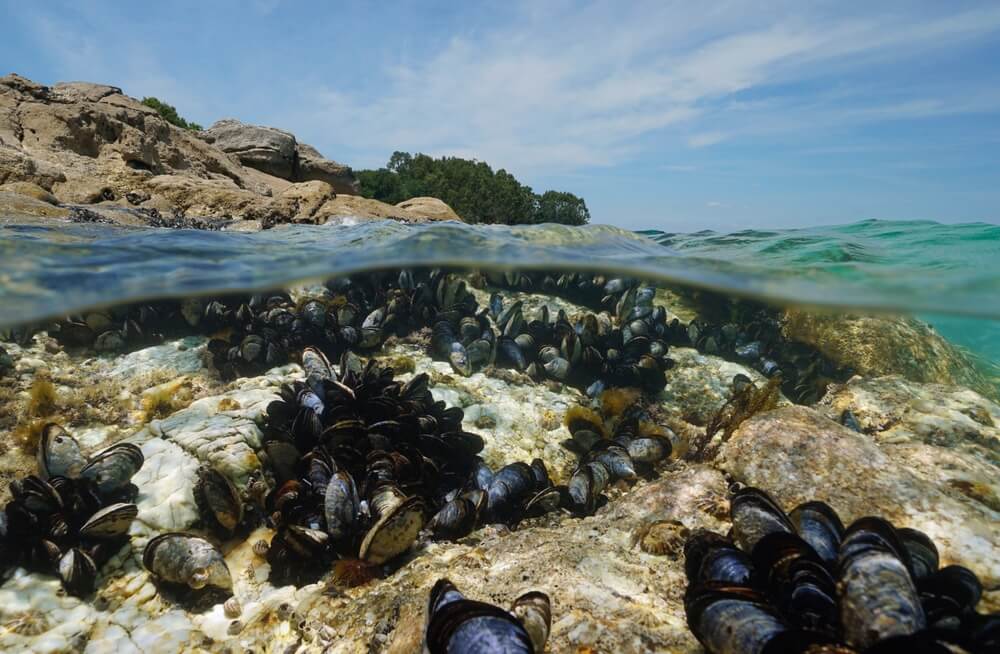
Planning Your Visit to Estepona
Best Time to Visit
Estepona enjoys a mild climate year-round, making it an ideal destination at any time. However, spring and early summer are particularly pleasant, with warm temperatures and vibrant local events. During these months, the seafood is exceptionally fresh, and the town buzzes with activity.
Exploring Beyond Estepona
While Estepona itself is a treasure trove of culinary delights, exploring the broader region of Andalucía is equally rewarding. Nearby cities like Marbella, Jerez, Sevilla, and Málaga offer their own unique takes on the cuisine of Southern Spain. A short drive inland reveals picturesque white villages, each with its own culinary secrets.
Estepona, with its rich seafood traditions and vibrant culinary scene, is a must-visit for food lovers. The town’s commitment to sustainable fishing practices ensures that its marine bounty remains plentiful for generations to come. Whether you’re savoring freshly grilled sardines on the beach or exploring local chef creations, Estepona offers a culinary experience like no other. Plan your visit today and immerse yourself in the flavors of the Costa del Sol.



